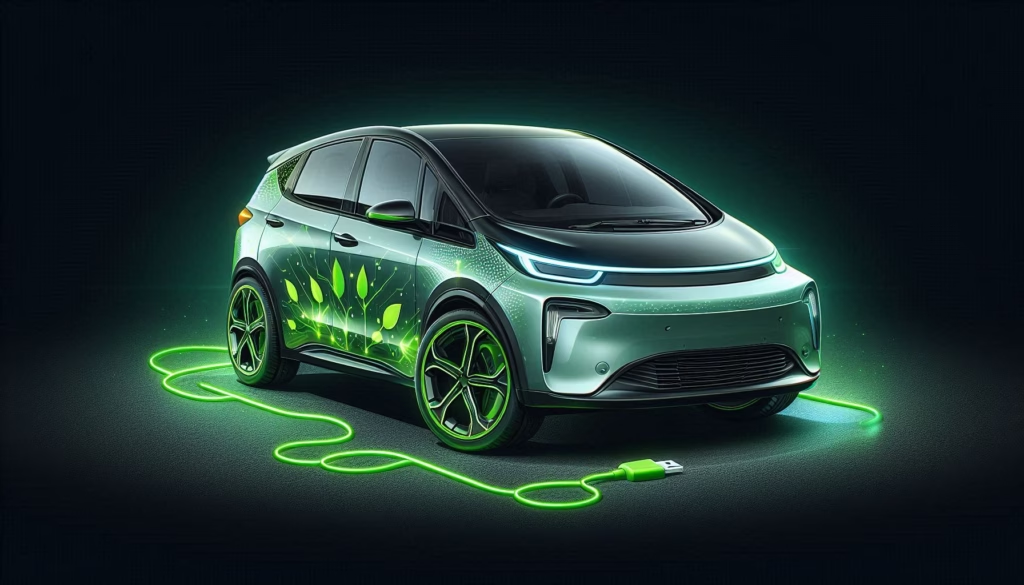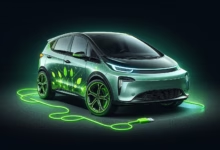
- Thanks to technology breakthroughs and environmental benefits, electric vehicles, or EVs, are growing in popularity.
- Challenges such as charging infrastructure, range anxiety, and cost are progressively being addressed.
- Government policies and incentives are essential for encouraging the adoption of electric vehicles (EVs).
- Innovations such as improved battery technology and renewable energy integration are crucial for sustainable development.
Why the Future of Cars is Electric
Electric vehicles (EVs) are sparking a revolution in the automotive industry. The increasing awareness about climate change and the environmental impact of traditional gasoline-powered vehicles leads many to explore sustainable options. This surge in interest is reflected in the market as individuals and businesses browse our inventory to discover efficient and eco-friendly vehicles. Environmental concerns and technological advancements drive the shift to affordable electric vehicles (EVs). As consumers seek eco-friendly options, adopting EVs is crucial for this transition.
Government Policies Encourage EV Use
Government initiatives are vital in accelerating the adoption of electric vehicles. Many nations offer incentives such as tax rebates, subsidies, and reduced registration fees to encourage consumers to switch to electricity. These policies are proving effective, as evidenced by a 50% increase in global electric vehicle sales attributed to government incentives.
Such policies not only make electric vehicles more accessible but also motivate manufacturers to innovate and produce sustainable automotive solutions. Governments are also investing in research and development and public awareness campaigns to enhance the public’s understanding of electric vehicles and address misconceptions. As these strategies evolve, they are expected to be critical in transitioning to a cleaner transportation ecosystem.
Innovations in Battery Technology
Battery technology plays a crucial role in the electric vehicle industry. Recent advancements have resulted in batteries that have longer lifespans, quicker charging times, and greater efficiency, addressing the common concern of range anxiety. For example, the development of solid-state batteries is set to improve electric cars’ overall performance and safety. These batteries provide higher energy density, faster charging, and more durability than traditional lithium-ion batteries.
This ongoing innovation has the potential to revolutionize the market by making electric vehicles more practical for everyday use, encouraging wider adoption. The research community continuously explores new materials and techniques to improve battery production, lower costs, and reduce environmental impact, paving the way for a more sustainable future in electric transportation.
Integration with Renewable Energy
Electric vehicles (EVs) and renewable energy sources must be integrated for transportation to be sustainable. EVs powered by solar or wind energy drastically lessen dependency on fossil fuels. According to experts, EVs will increasingly be used as energy storage devices, resupplying the grid with electricity during periods of high demand. This connection addresses environmental concerns and enhances energy stability. Innovative grid technology can also optimize EV charging and discharging, improving grid efficiency. As renewable energy sources expand, EVs will become key in balancing supply and demand, reducing strain on the grid and fostering a more resilient energy network.
Emerging Trends and Technological Advances
The electric vehicle sector is experiencing a wave of innovative trends. Features like autonomous driving, vehicle-to-grid (V2G) technology, and wireless charging transform our understanding of transportation. For example, autonomous driving has the potential to reduce traffic accidents and improve mobility for individuals who are unable to drive.
The introduction of 5G networks is expected to enhance electric vehicles’ connectivity and functionality further, allowing for real-time data exchange and more advanced vehicle management systems. By integrating these technologies, EVs can provide a seamless and convenient user experience, lower operating costs, and contribute to a cleaner and more sustainable urban environment.
The Road Ahead for Electric Vehicles
The future is electric, and the journey is just beginning. With continued investment, innovation, and support from both the public and private sectors, electric vehicles are poised to redefine our transportation systems. The transition may have challenges, but the potential benefits—healthier air quality, reduced greenhouse gas emissions, and energy independence—are compelling drivers of change.
Collaboration among manufacturers, governments, and consumers will be key in steering the course toward a sustainable automotive future. As roads become increasingly populated with electric vehicles, they represent a technological shift and a commitment to a cleaner and more sustainable planet. By embracing these changes, societies can ensure a greener and more resilient future for future generations.
Do you have other ideas about The Future of Electric Vehicles and Sustainability, 6 Important Insights article? You can comment below or discuss more related to “The Future of Electric Vehicles and Sustainability, 6 Important Insights” in the CnwinTech Forum. Also, read more articles about Insurance Tech, Insurance Business Investment, or other exciting tech tips and tricks at CnwinTech.










